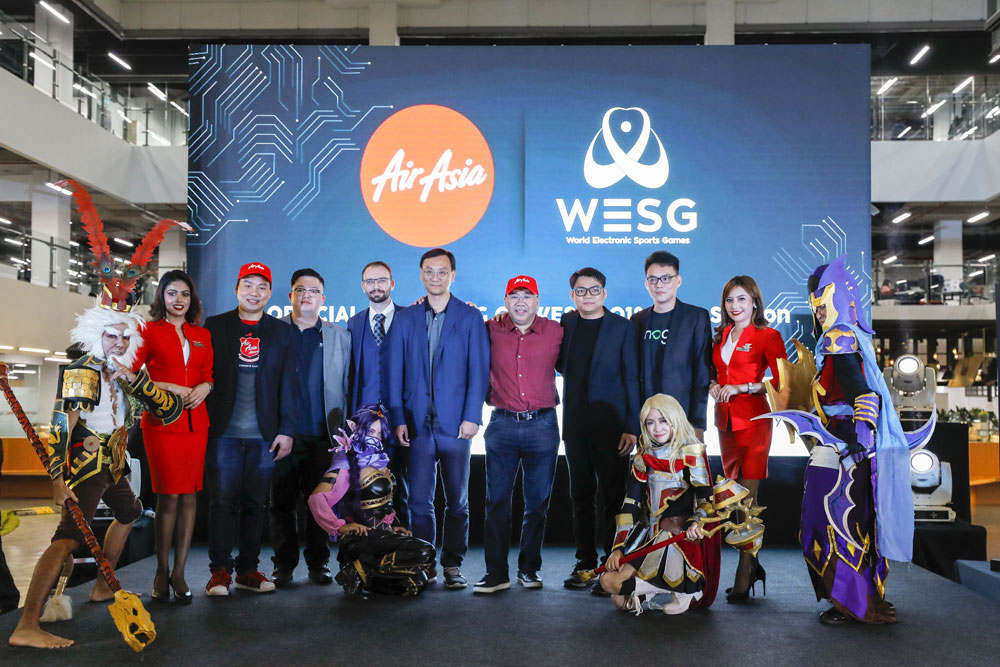Thanks to the Ministry of Youth and Sports’ initiative in organising online esports tournaments to encourage Malaysians to stay at home during the Movement Control Order, the billion-dollar industry has garnered increased visibility amongst netizens throughout this pandemic. Allan Phang, Regional Head of Marketing and PR at EVOS Esports – Southeast Asia’s leading esports organisation, discuss the pandemic’s impact to the esports industry and shares how he anticipates the industry in Malaysia to shift in the future as a result of COVID-19.
Allan Phang, a former business student of INTI International College Subang is currently the Regional Head of Marketing and PR at EVOS Esports – Southeast Asia’s leading esports organisation
Impact on the Esports Industry
Home and Esports
Currently residing in Subang Jaya, the PJ-born individual shared that there has been an explosion of interest towards esports in the private spheres due to the nature and circumstances of COVID-19.
“Since the slowdown of traditional sports and physical entertainment activities such as movies, karaokes and concerts during the lockdown, many have been exploring alternative sources of entertainment, which led to a dramatic spike in viewership towards esports related content online and a higher frequency of gaming, especially amongst Millennials and Gen Zs,” said the former Head of Esports at AirAsia.
The esports evangelist, who has also spoken in many global esports and digital conferences including in some of the world’s key esports capitals such as South Korea, USA and China, shared that his organisation alone had seen a whopping double increase in content viewership since the lockdown began. He also revealed that based on market research reports, more than one-third of internet users globally are spending more time playing video games during this pandemic, with 43% consisting of young male internet users aged between 16 to 24 years old.
Businesses and esports
With more than half of Malaysia’s consumer profile ranging between the ages of 14 to 39 years old1, Allan shares that brands, traditional athletes, musicians, and social media influencers have also developed an increased interest, openness and acceptance in adopting digital marketing strategies that incorporate esports and gaming components to reach Malaysia’s largest consumers – the Millennials and Gen Zs.
“I think the esports and gaming industry is now more widely accepted amongst these generations and due to the rapid digital adoption many organisations have had to make during COVID-19, marketers are seeing the tremendous potential in including esports and gaming activations into their marketing strategies, given its relevance and palatability to the current market conditions,” shared the former business student of INTI International College Subang.
Future of Esports
Increased adoption of IR 4.0 technologies in esports
Seeing how there may be more time spent on interactive activities indoors with the extension of the RMCO, Allan predicts that the industry will witness increased adoptions of IR 4.0 technologies in the future such as cloud gaming, 5G technology and virtual reality (VR).
“As the demand for live tournament streaming grows, esports industry players are already experimenting with VR and the anticipation of 5G. Today, we are also already witnessing many esports and gaming content through the likes of Twitch, Facebook and YouTube’s live streaming,” said Allan.
He also added, “Once the adoption rate of VR devices increases and the barrier to entry decreases; families, teenagers or anyone keen on esports will also be able to use VR to spectate esports matches from the comforts of their living room. This is the future.”
Allan (third from left) helps assist brands to connect with Millennials and Gen Z across Southeast Asia and create awareness on esports through his role at EVOS Esports
Younger esports professionals and increased job opportunities
Allan explained that as opposed to the Millennials who grew up in the midst of the Internet revolution, Gen Zs were exposed to digital devices almost from birth, making them more agile, dexterous, tech-savvy, and quicker with their reflexes.
He says, “These are pertinent skills to have as professional esports athletes and because of this, the average age of a professional esports athlete may get younger in the future comparing to the current average age of 20 to 25 years old.”
Allan, who is also responsible for strategising esports campaigns that have garnered global coverage, shared that as the industry grows through increased interest by brands and government bodies, it will also see the creation of more job opportunities.
“There will be a higher demand for shoutcasters or hosts, analysts, coaches, team managers, sports psychologists, personal chefs, social media managers, videographers, video editors, production crew, and many more!” he explained fervently.
Increased acceptance and awareness of esports
Allan also predicts that there will also be an increased awareness and acceptance of esports as Millennials and Gen Zs become the next generation of decision-makers in both the private and public spheres.
“As Millennials and Gen Zs take over the market and become our future decision-makers in governments, homes, and corporations, there will be a greater acceptance towards the esports industry, given that their general sentiment towards esports is more positive,” Allan shared.
Understanding that there are still many individuals and groups who have negative sentiments about the esports profession and its impact on health and wellness, Allan had this to say:
“I feel most people are still unaware that there is a difference between competitive electronic sports (esports) and playing games socially at home (gaming). The former requires professionals to perform at their highest levels, hence they would have to undergo strict training regimes similar to those of a traditional sports athlete, with routines that take into account work, play and rest,” expressed Allan.
He added, “I believe that if we continue to spread the awareness of esports, especially via mainstream media, the general consensus will shift and esports will become as much of a norm as football or other traditional sports.”

